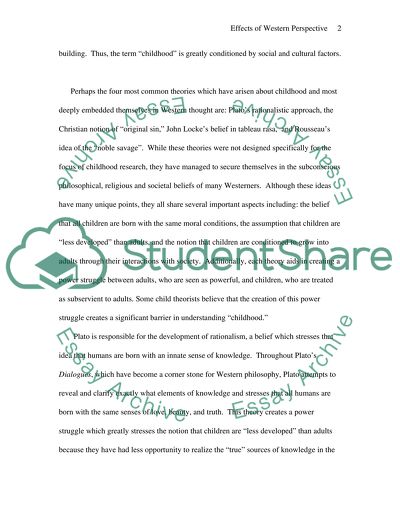Cite this document
(“The Effects of Western Perspective of Children Essay - 1”, n.d.)
The Effects of Western Perspective of Children Essay - 1. Retrieved from https://studentshare.org/psychology/1499468-the-effects-of-western-perspective-of-children
The Effects of Western Perspective of Children Essay - 1. Retrieved from https://studentshare.org/psychology/1499468-the-effects-of-western-perspective-of-children
(The Effects of Western Perspective of Children Essay - 1)
The Effects of Western Perspective of Children Essay - 1. https://studentshare.org/psychology/1499468-the-effects-of-western-perspective-of-children.
The Effects of Western Perspective of Children Essay - 1. https://studentshare.org/psychology/1499468-the-effects-of-western-perspective-of-children.
“The Effects of Western Perspective of Children Essay - 1”, n.d. https://studentshare.org/psychology/1499468-the-effects-of-western-perspective-of-children.


